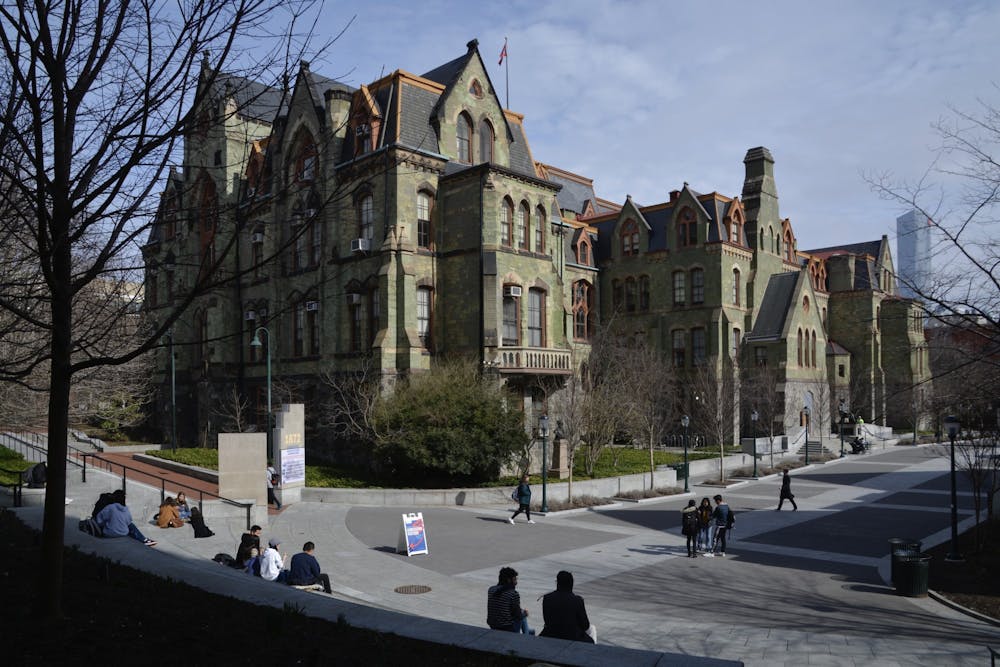After the University added 300 seats to summer course registration in order to accommodate a 70% increase in enrollment, it became clear that Penn’s summer courses are serving as a replacement for lost summer jobs or internships and helping to mollify those suffering from a seemingly never-ending quarantine. Yet, in spite of the unique circumstances of the pandemic, Vice Dean for Professional and Liberal Education, Nora Lewis, has maintained that the cost of each summer course unit will not change because the "value of a Penn course unit is the same whether the course is delivered on campus, online, or in a hybrid format."
But what is the value of a Penn course unit? Having just completed half a semester online, the loss is real: asynchronous classes, less discussion, minimal interaction with other students, and no hands-on lab sections. Penn’s commitment to its “value” regardless of the situation ignores the irreplaceable nature of in-person classes and Penn’s on-campus environment.
Penn exists as an on-campus university for a reason. We are a world class research institution known for access to Nobel Laureate professors and acclaimed labs. We get a unique college experience when attending live classes: interacting with peers and socializing with a wide array of perspectives, people, and environments. We look forward to meeting students in our major, exchanging ideas with students from other disciplines, learning from our TAs in office hours, and studying with friends in the library. That experience is part of what makes Penn Penn. It’s what rationalizes the normal in-person price for course credits.
When you take the students out of class, and instead place them alone in front of a computer, the entire dynamic shifts. All interactions, whether professor to student or student to student, are now filtered through a screen. The value of speaking with world-renowned professors or peers from different backgrounds is lost when talking only through online message boards. This abstracted version of Penn’s community, though inspiring, still fails to provide students with one of Penn’s core values: engagement. While the ability to continue classes amid a worldwide pandemic and quarantine is impressive, it should not diminish the fact that there are clear differences between online learning and in-person teaching.
The glaring absence of summer course discounts from Penn, and many of its peer universities, aligns with the traditional elitism and prestige associated with these universities. The concept that, simply by virtue of being Penn, our academic excellence will be maintained no matter what is reflected by a refusal to discount summer courses. But Penn, along with its fellow Ivy League schools, forgets that as it competes for the most talented students and most prestigious professors, the merits of both lessen through an online platform. The connection between maintaining our academic excellence and the corresponding huge price tag are reflected in Lewis’ statements. However, this attitude is never more out of place than in this time of chaos and uncertainty.
Alternatively, schools like Worcester Polytechnic Institute acknowledge the unique circumstances of the coronavirus outbreak and have adjusted their summer programs accordingly. WPI writes that “in light of the extraordinary changes Covid-19 has brought to WPI and beyond… we have deepened the discount on ALL undergraduate courses.” American University in Washington has announced that they will discount summer courses by 10% this summer. Some will argue that these universities experience pressures to decrease cost in order to drum up business in ways that Penn does not; nevertheless, their actions reflect humility and an acknowledgement of current events that we at Penn have yet to demonstrate.
Loved ones, jobs, safety, security, and a certain future have all been lost in the turmoil of this pandemic. While discounting tuition may seem small, doing so not only broadens the opportunity for many to be involved in Penn’s community this summer, but also demonstrates that the University is acknowledging and listening to students’ concerns. Doing so shows that Penn stands behind one of its founding pillars, engagement, and is capable of offering reassurance and empathy in times of struggle.

SEE MORE FROM AGATHA ADVINCULA:
AGATHA ADVINCULA is a rising College junior from Brooklyn, N.Y. studying Health and Societies.









